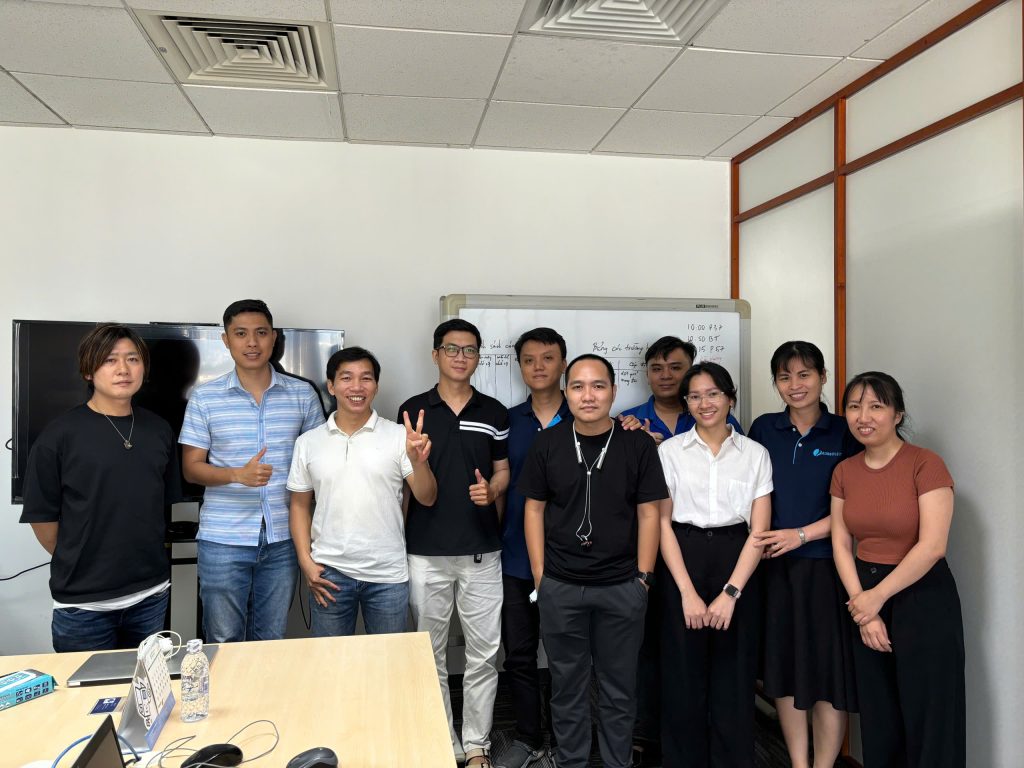Case StudiesCase Studies
- Home
- Case Studies
- Driving SaaS Quality Excellence: A Software Testing Case Study on SaaS Payroll Management System

Driving SaaS Quality Excellence: A Software Testing Case Study on SaaS Payroll Management System
Vietnam’s leading payroll and human resource management service provider faced persistent quality issues in their SaaS platform, particularly in payroll processing and compliance. SHIFT ASIA collaborated with the client as an external quality assurance expert to resolve these challenges. Through focused manual testing and strategic consulting, we significantly reduced critical defects, improved the reliability of core functionalities, and introduced measures to enhance long-term system quality. This partnership delivered measurable improvements while aligning with the client’s needs and budgetary constraints.
This case study highlights the importance of expert testing and quality assurance in SaaS development, demonstrating how SHIFT ASIA’s tailored approach improved the client’s product performance and end-user satisfaction.
About the Client
The client operates in the SaaS industry, primarily offering payroll processing and human resource management solutions to small and medium-sized businesses in Vietnam and Southeast Asia. Their flagship payroll management system includes automated payroll calculations, employee attendance tracking, and regional labor laws compliance. While the product is well-received for its functionality and adaptability, the client needed more dedicated testing resources to improve quality assurance. This gap resulted in frequent post-release defects that negatively impacted user experience and trust.
Challenges
The client faced several challenges that hindered the reliability and performance of their system. The high defect rate of 5.7% in their internally tested modules indicated significant gaps in their quality assurance processes. The client lacked a dedicated in-house testing team. Testing was conducted by internal staff with limited knowledge, resulting in missed scenarios and incomplete quality assurance. This led to functional defects surfacing after the system was deployed to end users, causing frequent disruptions. Budget and resource constraints further compounded these issues, necessitating an efficient and focused testing approach targeting the most critical areas of the system. These challenges underscored the urgent need for a specialized and systematic quality assurance process to improve the system’s reliability.
Scope and Requirements
Recognizing the need for external expertise, the client engaged SHIFT ASIA to improve the quality of their system. Due to resource limitations, focusing on core functionalities such as recording employee work hours and calculating payroll is required. The objective was to identify and resolve critical issues within a limited timeframe, providing immediate value while laying the foundation for sustained improvements.
Full-System Testing: Ideally, a comprehensive test was needed; however, budget constraints required focusing on critical functionalities.
Core Functionality Focus:
- Recording employee working hours accurately.
- Ensuring flawless payroll calculations, including taxes, overtime, and deductions.
- Efficiency and Timeliness: Testing needed to be conducted within a short time frame to minimize disruptions and deliver results promptly.
SHIFT ASIA Solutions
SHIFT ASIA employed a targeted approach to address the client’s challenges. The testing strategy was centered around manual testing during the integration phase, focusing on black-box testing to identify functional defects efficiently. Core user paths were prioritized to maximize the impact of testing efforts within the scope of available resources. While full implementation of SHIFT ASIA’s advanced testing methodologies was not feasible due to cost constraints, we leveraged our expertise to design test cases, execute tests, and propose actionable recommendations. These included transitioning to centralized test management using CAT and introducing regression testing to address future needs.
Testing Methodology
Manual Testing:
- Conducted during the integration phase to identify functional defects efficiently.
- Prioritized core user paths to maximize impact within the budgetary scope.
Black-Box Testing:
- Focused on critical functionalities without deep access to the system’s internal codebase.
- Targeted key areas such as payroll calculations and attendance tracking.
Proposals for Long-Term Quality
Based on the testing outcomes, we recommended:
- Transitioning to centralized test management using CAT and moving away from Excel-based methods.
- Implementing regression testing strategies for future releases to detect and prevent recurring defects.
SHIFT ASIA Approach
Collaboration was at the heart of our approach. The team worked closely with the client’s development leader, QA leader, and CEO to ensure alignment with business goals. Dedicated project management and testing professionals from SHIFT ASIA created a tailored testing environment, allowing for precise identification and resolution of defects. The team balanced immediate quality improvements with strategic insights, equipping the client with tools and methodologies to maintain and enhance quality over time.
Technologies and Tools
SHIFT ASIA utilized black-box testing techniques to evaluate the functionality of the client’s web and mobile applications. Test management was conducted using CAT, a centralized tool that improved tracking and reporting accuracy. This approach replaced the client’s reliance on Excel-based methods, streamlining the testing process and ensuring consistency.
Results
SHIFT ASIA’s involvement yielded significant results. The critical defect rate dropped from 5.7% to 3%, with major functional issues identified and resolved before release. Testing time was reduced from six to three weeks, while developer rework decreased by 15%. These improvements translated to fewer end-user complaints and enhanced system reliability. The client also transitioned to using CAT for test management, enabling better long-term oversight of quality assurance processes.
Client Testimony
The client was highly satisfied with the results delivered by SHIFT ASIA. They acknowledged the professionalism and expertise of the SHIFT ASIA team, noting that the quality of test design and defect analysis exceeded their expectations. “SHIFT ASIA’s track record was highly effective. The quality improvements exceeded our expectations, though the cost was slightly higher than anticipated.” The client expressed particular appreciation for the strategic insights, such as the importance of regression testing when introducing new features.
How Software Testing Benefits SaaS and How SHIFT ASIA’s Expertise Fits In
In the SaaS industry, where reliability and user satisfaction are critical, robust software testing ensures seamless functionality and builds user trust. Effective testing identifies issues early, reduces post-release defects, and enhances operational efficiency by minimizing rework and streamlining deployment cycles. With a deep understanding of SaaS challenges, SHIFT ASIA delivers customized testing strategies, leveraging its manual and automated testing expertise to address critical defects while proposing long-term quality improvements. These efforts ensure that SaaS providers maintain high standards, meet user expectations, and build scalable, dependable systems.
Conclusion
By collaborating with SHIFT ASIA, the client successfully improved the quality and reliability of their payroll management system. The partnership demonstrated the value of strategic testing in addressing immediate challenges and providing sustainable quality solutions. SHIFT ASIA’s ability to combine technical expertise with practical insights ensured a transformative impact on the client’s operations, enabling them to deliver a robust, user-friendly product. This case highlights how specialized testing and consulting can benefit SaaS businesses striving for operational excellence and customer satisfaction.
ContactContact
Stay in touch with Us




